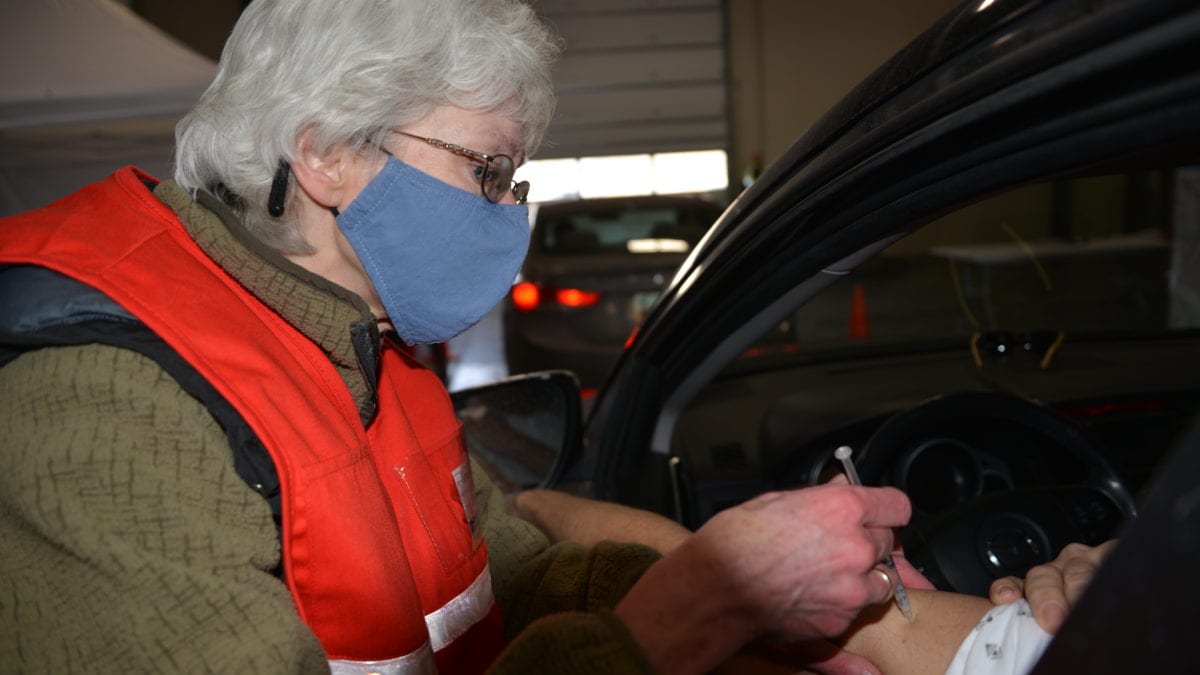Health
Vaccine Eligibility for Utahns 65+ Begins in March

A vaccination clinic worker vaccinating a Summit County resident in their car. Photo: Courtesy of Summit County
SUMMIT COUNTY, Utah. — According to a statement by the Summit County Health Department, Governor Spencer Cox announced that new vaccine eligibility will begin March 1 for Utahns 65 to 69 years old as well as those 18 or older with specific medical conditions (listed below).
The Summit County Health Department stressed in its statement that residents falling into these groups shouldn’t call the health department or attempt to make vaccine appointments just yet, as it is currently committed to providing vaccines to those 70 and older.
The statement reads: “Trying to contact local health departments right now could slow that process down and delay vaccine availability for future groups.”
An announcement will be made later this month once registration is open for Utahns who fall into these categories and therefore qualify for the vaccine.
Summit County Health Department’s qualifying medical conditions for the vaccine:
- Solid organ transplant recipients
- Cancer: non-hematologic diagnosed within last year (excluding basal and squamous cell cancer diagnoses); hematologic diagnosed within last five years
- Receiving immunosuppression therapy
- Immunocompromised state (weakened immune system) from blood, bone marrow, or organ transplant; HIV; use of corticosteroids long-term; or use of other immune weakening medicines long-term
- Severe kidney disease: on dialysis or with stage 4 or 5 chronic kidney disease
- Uncontrolled diabetes: patients with an A1c of 9.0 or higher
- People with a BMI of 40 or higher (also known as Class III or severe obesity)
- Chronic liver disease: chronic hepatitis B or C, chronic infective hepatitis (hepatitis B or C), alcohol-related liver disease, primary biliary cirrhosis, primary sclerosing cholangitis, or hemochromatosis
- Chronic heart disease (not hypertension): chronic heart failure, ischaemic heart disease, and severe valve or congenital heart disease
- Severe chronic respiratory disease (other than asthma): including severe chronic obstructive pulmonary disease, fibrosing lung disease, bronchiectasis or cystic fibrosis
- Neurologic conditions that impair respiratory function, including: motor neuron disease, myasthenia gravis, multiple sclerosis, Parkinson’s disease, cerebral palsy, quadriplegia or hemiplegia, progressive cerebellar disease, epilepsy, Down syndrome
- Stroke and dementia (Alzheimer’s, vascular, frontotemporal)
- Asplenia including splenectomy or a spleen dysfunction, including sickle cell disease
















